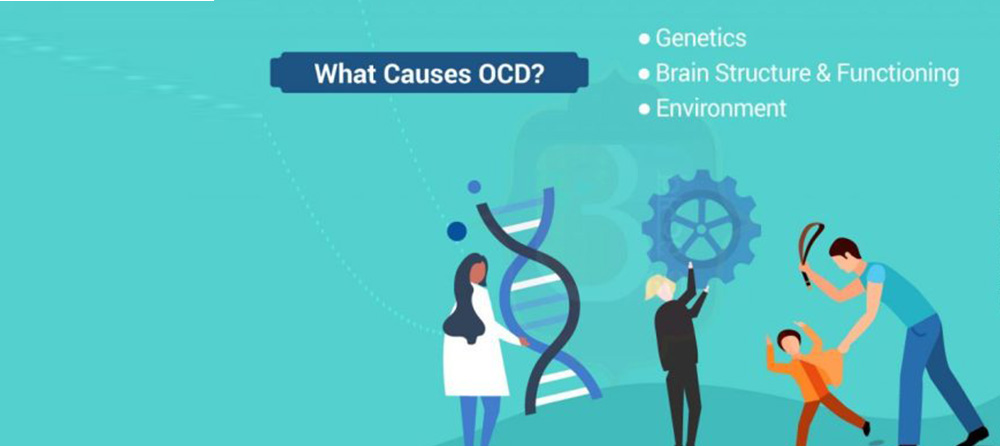Obsessive Compulsive Personality Disorder: All You Need to Know
Obsessive Compulsive Personality Disorder (OCPD) is a type of personality disorder marked by excessive perfectionism, orderliness, and neatness. People suffering from OCPD will also have a strong desire to impose their own standards on their surroundings. Personality qualities that are steady, long-held, abnormal, and harmful in some manner are sometimes involved. People with OCPD may find it difficult to relate to others, and their obsession with perfectionism and rigorous control can make it difficult to function normally.
Overview of OCPD
The prognosis for OCPD is often better than for other personality disorders. The rigidity and control of OCPD may preclude many of the consequences that are frequent in other personality disorders, such as substance abuse.
Social isolation and difficulties managing anger are prominent symptoms of OCPD and may lead to anxiety and depression in later life.
Following Topics of This Blog Have Been Discussed Below:

Difference between “OCPD” and “OCD”
Obsessive Compulsive Personality Disorder (OCPD) is a personality disorder that is frequently misdiagnosed with (OCD). These two disorders have similar names and are sometimes mistaken with one another, but they are actually two totally distinct and separate conditions.
The key difference is that OCD sufferers engage in repetitive activities, but OCPD sufferers are perfectionistic in many areas, leading their relationships with others to suffer considerably.
Personal connections are not harmed by Obsessive Compulsive Disorder. (OCPD)has a negative influence on interpersonal connections.
Committed to helping
people who want to help themselves
Symptoms of Obsessive Compulsive Personality Disorder
Commonly observed symptoms of Obsessive Compulsive Personality Disorder include the following:
- Stiff, formal, or inflexible demeanor
- Extreme financial frugality
- A strong desire to be prompt
- Meticulous attention to detail
- Overabundance of dedication to work at the expense of family or social connections
- A feeling of right and wrong regarding how things should be done
- Perfectionism to the point of impairing capacity to complete tasks
- Collecting worn or worthless goods
- An unwillingness to share or delegate work due to a worry that it will not be done correctly
- An obsession with lists
- Strict observance of norms and regulations & order
Symptoms of Compulsion:
Compulsions are behaviors/tasks that have to be done over and over again in response to obsessive thoughts to relieve anxiety and to satisfy your inner self. These compulsion symptoms include:
- Washing hands or stuff repeatedly in order to get rid of germs.
- Organizing things in a precise way.
- Counting stuff, again and again, to make sure about accuracy.
- Compulsive counting.
- Repeating things

Causes of Obsessive Compulsive Personality Disorder:
It is not yet unknown that what causes OCPD, although there are some theories that explain different possibilities. One idea focuses on attachment styles, claiming that OCPD can develop in toddlers who:
- Grew up with overprotective parents who didn’t provide much care
- Did not grow emotionally or empathetically as children
- Were unable to build trusting ties with their parents
There may also be a biological component to OCPD, since having relatives with the disorder may increase your tendency of developing it.
Complications of Obsessive Compulsive Personality Disorder:
- Depression
- Anxiety
- Difficulty moving forward in career situations
- Relationship problems
Diagnosis of Obsessive Compulsive Personality Disorder:
Your doctor will most likely seek for at least four of the personality characteristics specified in the DSM-5 to diagnose you with OCPD:
- Excessive job dedication at the expense of family or friends
- Excessive demand for perfection and unyielding control over your surroundings and interpersonal connections
- A lack of ability to be kind to others
- Inability to assign responsibilities
- Inability to dispose of worn-out or useless objects (even those without sentimental value)
- Over-conscientiousness
- Preoccupation with details, rules, lists, and order, which might cause one to overlook the main goal of an activity
- Toughness and rigidity in terms of ethics, morals, values, and/or rule-following
Committed to helping
people who want to help themselves
Treatment of Obsessive Compulsive Personality Disorder:
Though more study is needed in this area, most treatment strategies for personality disorders begin with psychotherapy, and sometimes medication is used as a support. Obsessive Compulsive Personality Disorder Psychotherapy:
Cognitive-behavioral treatment (CBT) focuses on assisting you in recognizing and eventually changing the negative thinking patterns linked with OCPD.
Psychodynamic therapy is intended to explain your conscious and unconscious ideas and emotions so that you can make better decisions in your daily life.
Medication for Obsessive Compulsive Personality Disorder:
Your doctor may prescribe medication to assist reduce some of your OCPD symptoms, particularly if you’re also suffering from another disorder such as depression. This might include anxiety medications and/or antidepressants.
Self Help for Obsessive Compulsive Personality Disorder:
In addition to getting therapy, you can learn some coping methods for OCPD. These may include:
Educating yourself:
Gaining a better understanding of your disease may be a liberating experience. It may assist you in recognizing when an OCPD symptom is causing your behavior so that you may take appropriate action.
Stress management:
Keeping your stress levels under control is generally a good idea. Make a strategy to lessen stress so you’ll be prepared to deal with whatever comes your way.
Self-care:
If you have OCPD, it is easy to neglect yourself while focusing on your current project. Consider incorporating self-care into your daily routine.
Practicing mindfulness and meditation:
Mindfulness can help you identify instances when perfectionism is generating anxiety, for example, so you can take efforts to relax. Meditation is a powerful stress reducer.
